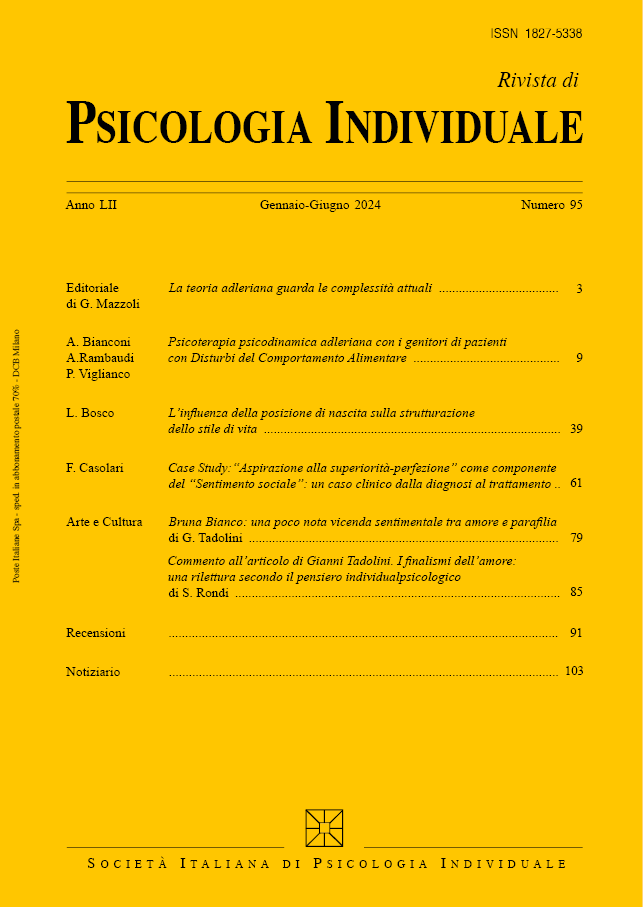FOR A PSYCHODYNAMICS OF SELF-COMPASSION: BEYOND EMPATHY, THROUGH THE CREATIVE SELF
Keywords:
self compassionAbstract
The phenomenon of empathy is sometimes considered almost synonymous with compassion. Although many studies present a more cognitive image, the etymology of the word indicates a phenomenon that goes beyond the cognitive perception of the internal emotional state of the other. Although the concepts of empathy and compassion have been around for many centuries, their scientific study is relatively recent. While empathy is born as an implicit perception of the emotions of others, compassion differs from empathy because it includes the desire, also, but not only explicit, to alleviate the suffering of others. Although there are still no univocal meanings, researchers and clinicians understand compassion as an empathetic response to suffering, perceived even if not consciously, a conscious process, but not only that, which pursues the patient's well-being through specific and ethical actions aimed at finding a solution to his suffering. In this contribution, after having considered some recent neurophysiological and clinical developments, the authors discuss the characteristics of compassion with respect to empathy through references to the concepts of Personality, Character, Cooperativity, Social Feeling. In particular, the psychobiological model of personality and its connections with Individual Psychology (IP) are proposed.
The family crisis and the continuous growth of psychopathologies in children call for urgent revisions of care models as well as of training courses for parents (!) and clinicians. In order to contribute to this revision, after some references to the problem of the development of compassion, the hypothesis of a psychodynamic of (self)compassion is presented, where meeting, alliance with the deficit, forgiveness, Creative Self, process of encouragement would be both precursors and effects of self-compassion. The belated assumption of the maternal function by Adler presented as the essence of the psychotherapeutic relationship IP should consider the compassionate mother as well as the empathic mother…. Forgiveness and compassion are configured as social propensity attitudes and indicate the opportunity to implement the training of IP therapists with depth analysis courses that favor the acquisition of skills, ways of being compassionate and prone to self-compassion by paying attention, in some patients, to the defenses and barriers to compassion and its side effects.
Empathic / compassionate understanding represents the founding virtue together with the propensity for encouragement of being a psychotherapist today... The style of empathic reception to contribute to the evolution of the Self - on the part of the patient - must express being, feeling compassionate authentic of the therapist, his “creative” doing, even subliminal and implicit, which promotes the alliance and repair of the deficit






